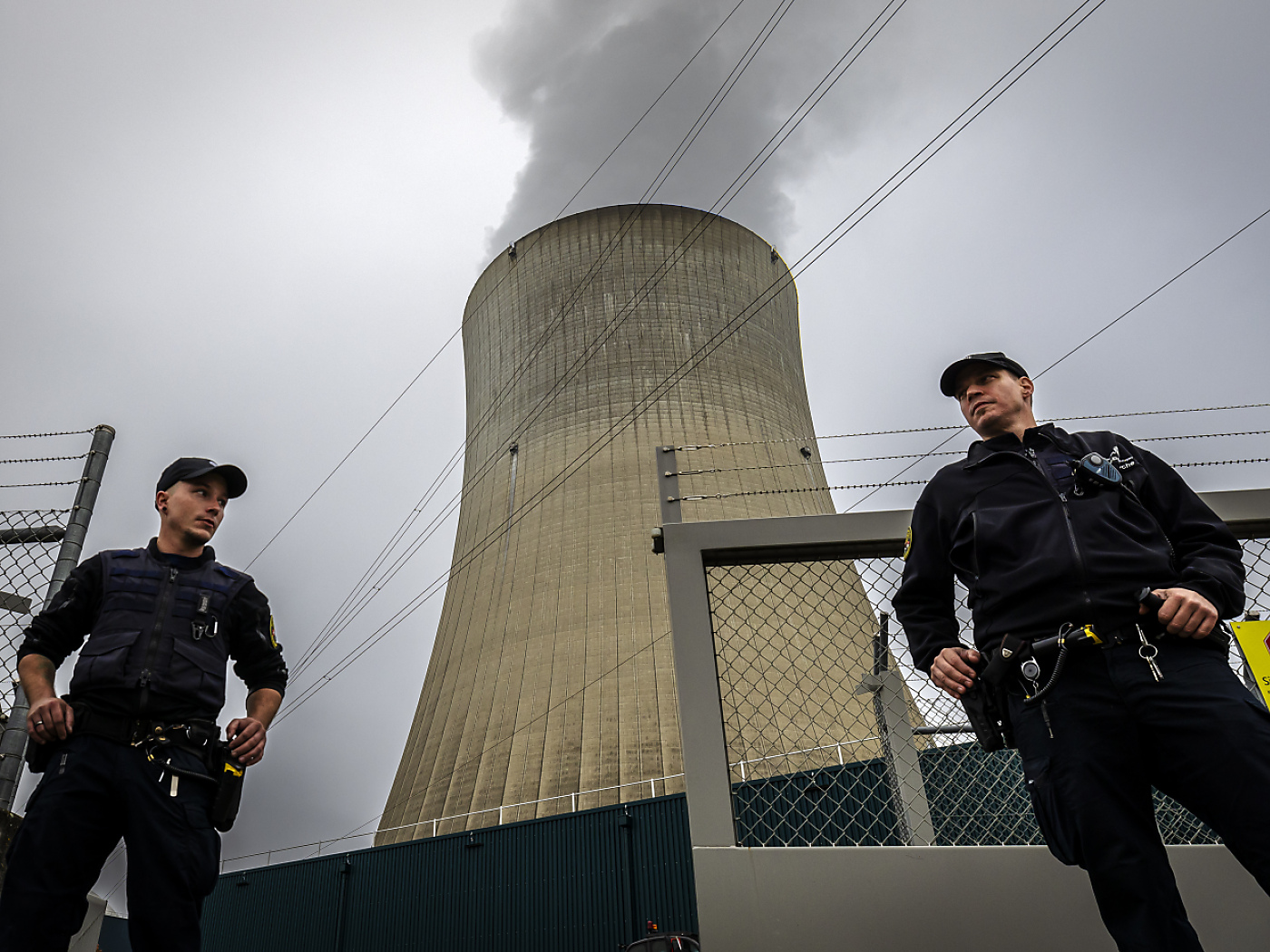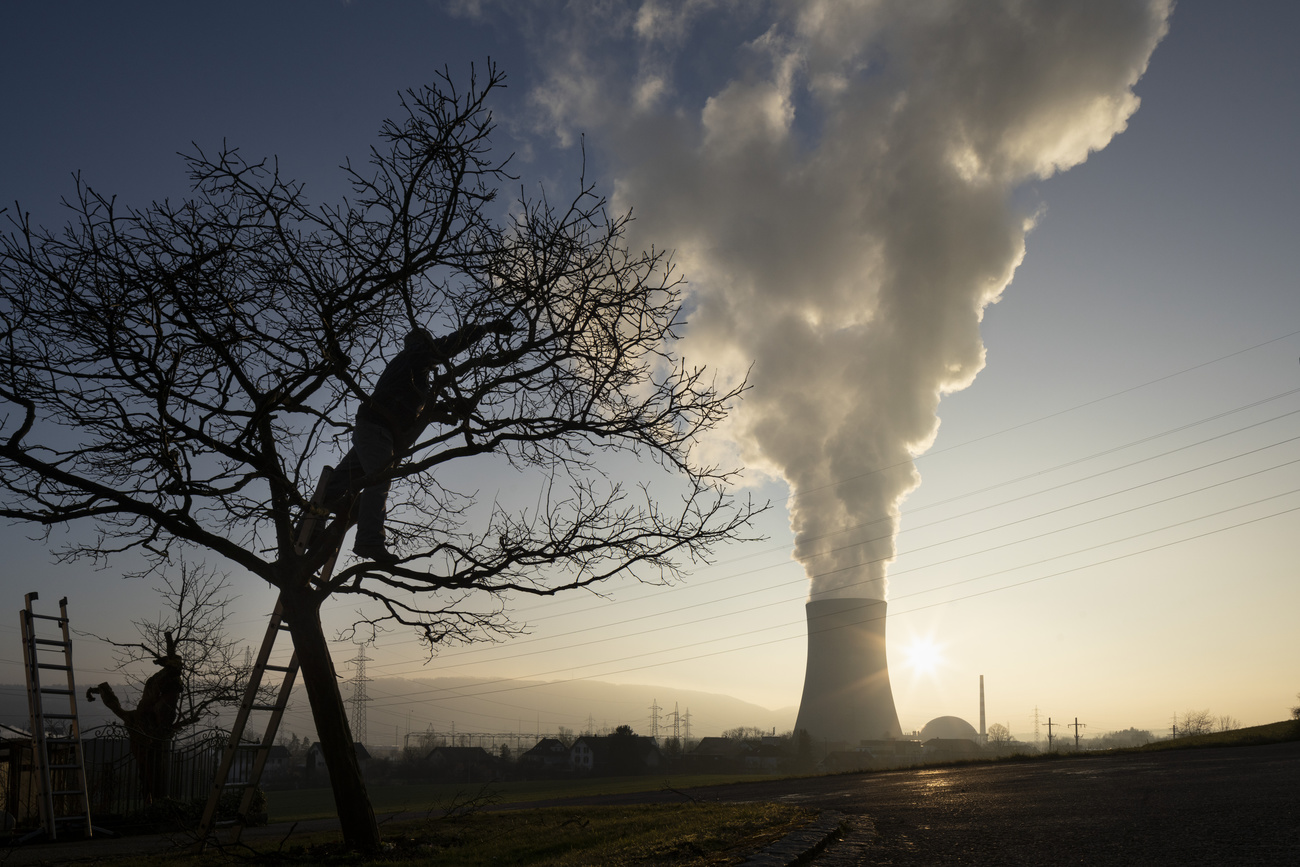
Heatwave reduces output at Swiss nuclear power plant by 50%

The ongoing heatwave has forced the Beznau nuclear power plant, which relies on water from the River Aare, to halve its output.
+Get the most important news from Switzerland in your inbox
This measure, which is in line with a decision by the Swiss Federal Office of Energy in 2019, is designed to protect the river’s ecosystem.
As a result of the heatwave, the temperature of the River Aare downstream of the Beznau nuclear power plant in canton Aargau reached 25 degrees Celsius on Sunday. The power at the facility has been gradually lowered in recent days as the water temperature continued to rise, Axpo said in a statement on Monday.

More
Swiss heatwave danger raised to second-highest level
Cooling water for the Beznau power plant is taken from the Aare and returned to the river after use. In hot weather, it is essential to prevent any further heating of the already warm river water, to avoid further stress to aquatic fauna and flora.
Consequently, Axpo reduced the output of the plant’s two reactors to around 50% the day before. “The reduction in reactor output is a prescribed measure to protect the ecological balance of the River Aare,” said Michael Kessler, head of the nuclear energy division at Axpo, in the press release.

More
Swiss government proposes lifting nuclear power ban
Reaction to the heatwave in summer 2018
This is not the first time that a power station cooled by water from the River Aare has had to reduce its output due to a heatwave. Following hot weather in summer 2018, the Swiss Federal Office of Energy (SFOE) introduced transitional regulations with immediate effect for the discharge of cooling water from Beznau in 2019.
With this decision, the 25C temperature limit for watercourses laid down in the Water Protection Ordinance became mandatory for Beznau. If the limit is exceeded or is in danger of being exceeded, the power output of the plant must be drastically reduced or even shut down.
Axpo points out that even with a reduced output, the Beznau nuclear plant continues to contribute to Switzerland’s electricity supply. The operator is “in close contact with the relevant supervisory authorities and is constantly monitoring the water temperature”, it said.
Should the weather conditions deteriorate further, Axpo is technically and operationally prepared to shut down both units if necessary, the company adds. Unlike other facilities in Switzerland, at Gösgen and Leibstadt, Beznau does not have a cooling tower.
What is your opinion? Join the debate:

More
Could Switzerland build new nuclear power plants?
Translated from German by DeepL/sb
We select the most relevant news for an international audience and use automatic translation tools to translate them into English. A journalist then reviews the translation for clarity and accuracy before publication.
Providing you with automatically translated news gives us the time to write more in-depth articles. The news stories we select have been written and carefully fact-checked by an external editorial team from news agencies such as Bloomberg or Keystone.
If you have any questions about how we work, write to us at english@swissinfo.ch

In compliance with the JTI standards
More: SWI swissinfo.ch certified by the Journalism Trust Initiative




























You can find an overview of ongoing debates with our journalists here . Please join us!
If you want to start a conversation about a topic raised in this article or want to report factual errors, email us at english@swissinfo.ch.